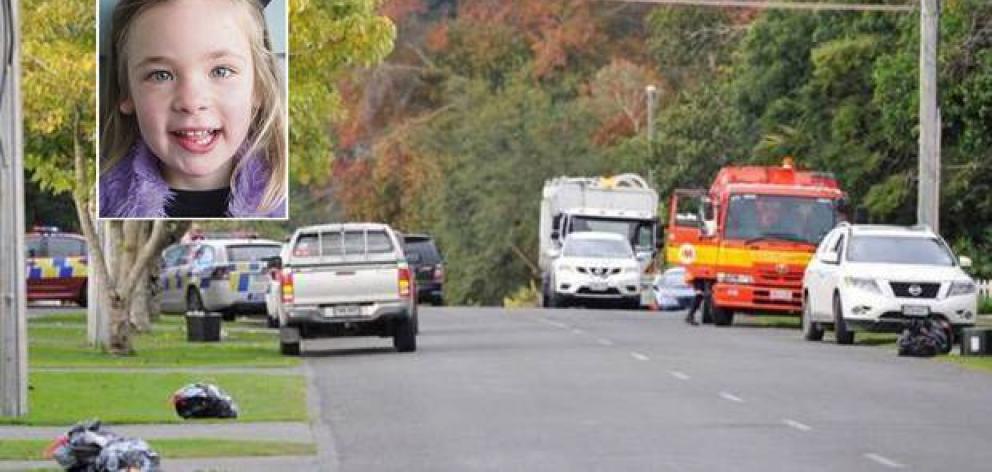
There has been some intense public discussion since the coroner ruled on the death of the 6-year-old Gisborne schoolgirl, killed by a recycling truck while riding home from school on her scooter in May 2017.
Perhaps that is a healthy, even necessary, part of the process - robust conversations, after all, can lead to meaningful change that prevent future tragedies - but there is a risk of losing sight of the issue by pointing the finger.
The instinctive reaction to the ruling of Coroner Tim Scott that Carla should have been accompanied by an adult was that it was exceptionally unfair on a family already grieving the death of a precious daughter and sister.
It is not the coroner's role to apportion blame, yet this is precisely what played out. The schoolgirl's parents were effectively blamed for the accident. Even indirectly, this must have caused more grief for them.
The ruling was met with swift condemnation by politicians and groups lobbying for safer conditions on our streets and footpaths.
Green MP Julie Anne Genter labelled it ''victim blaming'', pointing out the coroner focused on the specific actions of the victim rather than looking at a ''system that created an unsafe situation for kids being kids''.
For pedestrian organisation Living Streets Aotearoa, the case clouded the issue of children having the right to walk to school safely, and the Government's duty to provide that safety.
What sticks out in this case is that little Carla was so close to home - just 100m from the safety of the front door. She was not kilometres away; she was, it is worth repeating, just 100m from home.
On a suburban Gisborne street, it could have been anyone walking in the vicinity of that recycling truck. What if it had been a 90-year-old woman, hard of hearing and with poor eyesight, having a quiet stroll? Should she have required supervision? Or what if it had been teenagers engrossed in their phones? How often do they have close calls?
The laws around supervising children are not always clear, in any case.
The police say the onus is on parents and caregivers to teach children how to get to school and back safely, negotiating any hazards along the way. And Education Minister Chris Hipkins made it clear ''parents, schools and their local communities'' were the ones best placed to determine how children could stay safe on the school run.
Parents are constantly being told they are sheltering children. They ''mollycoddle'', apparently. ''Helicopter parents'' are seen as a major problem.
Now the message is that they are at fault if their child is left on their own for 100m along a suburban street? How is that remotely fair?
It seems odd the coroner's major focus was not the bigger picture of how this sort of tragedy can be avoided - how our street layouts, speed limits and vehicle safety can improve - though, to be fair, he did recommend the waste management company retro-fit audio proximity alarms.
The coroner who ruled on this desperately sad case is doubtless not a heartless bureaucrat. It is not an easy job, taking out all emotion to deliver a verdict on something like this. And, remember, his opinion was backed by the police crash investigator.
But there are times when it is entirely appropriate to say parents have let their children down, and there are times when it seems obvious that message either serves no purpose or is wildly misguided.
The conversation about providing safe spaces for our children to get to and from school should continue; blame directed at parents should stop immediately.
Comments
What if accompanying children is 'not practical', as a headmaster and others say? Make it practical. Teaching safety only works if vehicles follow the patterns taught in lessons. Child development is unrelated to adult cognition.
I would say the people who complain about 'cotton wool' parenting are ideologues, concerned with social trends, not so much the children.
Even adults have died in a similair way and for the same reason that she died.












